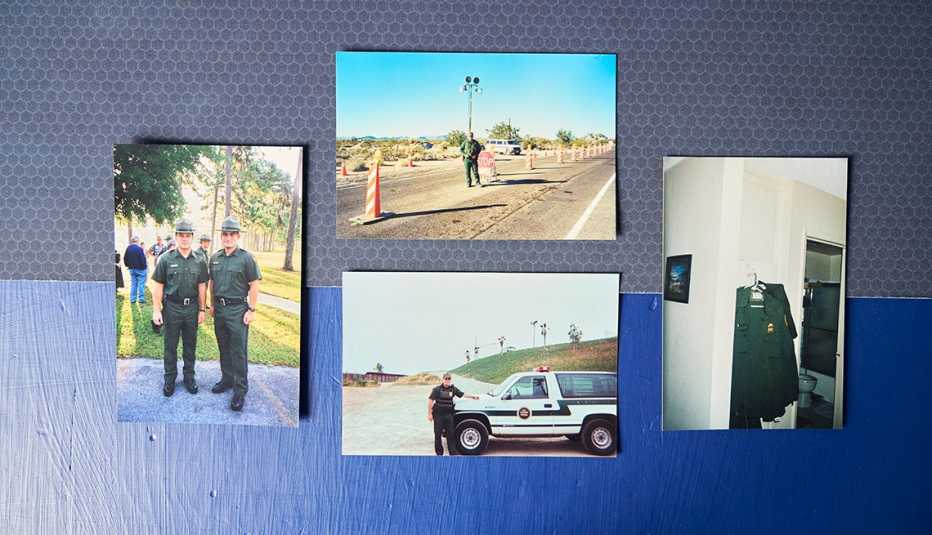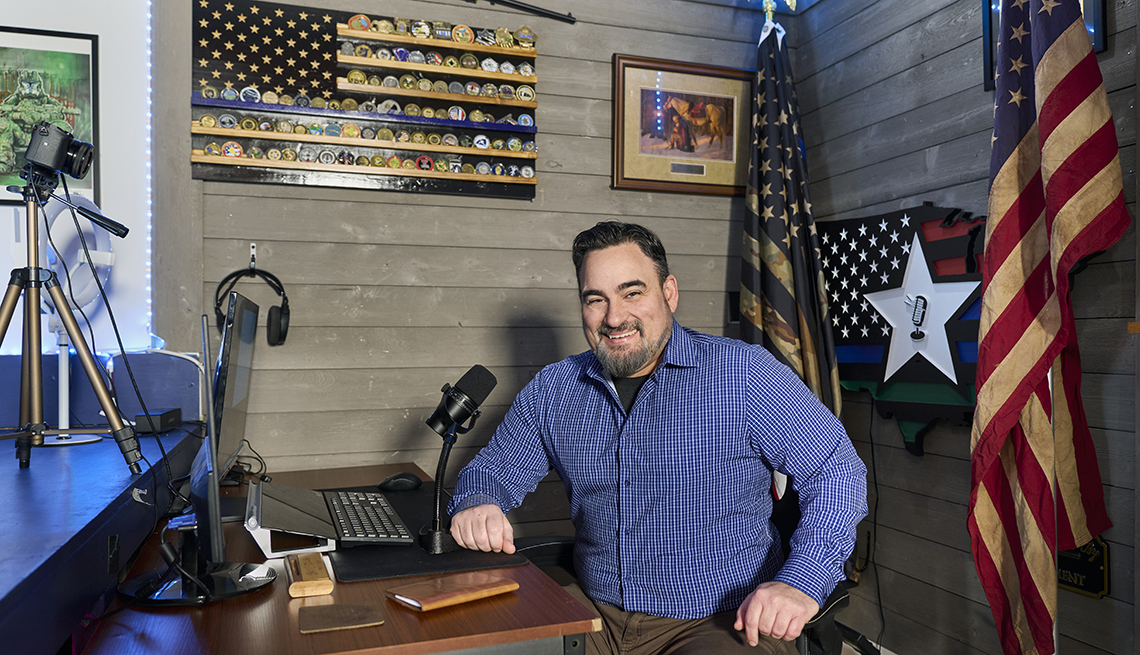Staying Fit


You can subscribe here to AARP Veteran Report, a free e-newsletter published every two weeks. If you have feedback or a story idea then please contact us here.
There are countless reasons for a veteran to launch a podcast. I started The Protectors Podcast® in 2019 to spotlight great guests, especially from the worlds of the military and law enforcement, and have since gone on to interview over 400 people.
Before you start podcasting, make sure you know why you want to start a podcast. Think about what topics you would like to cover and if you would like to interview guests or do a monologue, meaning a solo show with just you talking.
Clint Emerson, former Navy SEAL, author and podcaster, recommended, “Make sure you have a subject matter that has longevity, because you will run out of material quickly if you don’t. Then, let your listeners guide the way, because whatever great idea you have may be dumb to everyone else.”
You might want to pick a niche to narrow down the topics your podcast will cover or be more wide-ranging. Pete Turner, Army veteran and host of the Break It Down Show, doesn’t cover just one topic. Pete told me, “Life isn’t a niche. I’d rather explore topics with renowned experts and artists than focus on one thing.


AARP Membership— $12 for your first year when you sign up for Automatic Renewal
Get instant access to members-only products and hundreds of discounts, a free second membership, and a subscription to AARP the Magazine.
“The topics often choose me; it’s current events, people I encounter in life or a guest suggestion that drives my content choices.”
Basic Equipment You Need to Start
There are three essential pieces of equipment you need to record at home: a microphone, a headset and a computer:
- Microphone. A microphone with a stand, but don’t break the bank. You can find a microphone for under $50 that will do the job. A cardioid microphone will focus the sound and keep out unwanted noise.
- Headset. A headset, especially if you are interviewing guests. A headset allows you to monitor your sound levels as you record.
- Computer. You can use a computer to record the interview or monologue, and edit and upload the audio to a streaming platform. While you can record a podcast on your telephone, it is not recommended.
It’s pretty simple; with those three pieces of equipment, you can become a bona fide podcaster.


“Sell” Your Show
You put a lot of effort into getting the show going and recording each episode; now, let the world know what you have.
How do people find your podcast? Social media, word of mouth, advertising. It all comes down to you. Unless you have a marketing team and a budget, you must self-market your show. Ask your friends, family, neighbors and the guy in line at the post office to listen to your show.
A podcast is informative, but don’t forget that it needs to be entertaining. Few people will tune in to hear inside jokes or bland conversations among friends.
Give It Time
Don’t give up! Mark Kelley, Desert Storm veteran and cohost of the On the Range Podcast, gave solid advice about quitting.
“Don’t quit, and keep pushing out good content,” he said. “Most new podcasters quit publishing episodes around show number 14. They expect to have thousands of listeners instantly. And when they don’t, they quit. To be successful at this, it’s going to take a lot of time and learning.
You can subscribe here to AARP Veteran Report, a free e-newsletter published every two weeks. If you have feedback or a story idea then please contact us here.




































































